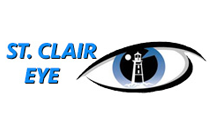Sponsored by: St. Clair County Community Mental Health
By Debra Johnson, Executive Director, St. Clair County Community Mental Health
When the Autism Society held the first National Autism Awareness Month in April 1970, only 1 in 2000 children
Despite the impact autism spectrum disorder has on families and communities, many people still do not have a good understanding of autism. For example, a recent poll conducted by the National Alliance for Autism Research revealed that most Americans still do not know how
common it is, the challenges it creates for individuals, the common warning signs and available treatments.
Autism Spectrum Disorder is a developmental disability that often causes difficulty with communication, social, and emotional skills. It affects children of all ethnicities, backgrounds, and social status, although it is more commonly diagnosed in boys with a ratio of 4 males for
every female. Currently, no medical tests can diagnose autism. However, there are ranges of delays in developmental milestones that may signal the presence of autism. These include early indicators between birth and five years of age such as no babbling or pointing by age one, no single words by 16 months, no two-word phrases by age two, no response to hearing their own name, poor eye contact, no smiling, minimal language or social skills, excessive lining up of toys or objects, and other similar repetitive behaviors. Signs common among children diagnosed with autism spectrum disorder after age five include difficulty making friends, absence or deterioration of imaginative and social play, repetitive or unusual use of language, difficulty having conversations, and inflexible adherence to specific routines or rituals.
Because early intervention improves outcomes for those diagnosed with autism, it is essential that we break down barriers to
therapy, an evidenced-based practice that applies reinforcement principles to everyday situations in order to, over time, increase or decrease particular behaviors and improve language skills, non-verbal communication, peer interactions, daily living skills, ability to follow instructions, and cognitive skills. The Michigan legislature has mandated that individuals between eighteen months and 21 years of age who are covered by Medicaid and MIChild be provided with ABA services.
St. Clair County Community Mental Health (SCCCMH) operates an ABA program in Port Huron. The center’s curriculum is designed to teach skills in home and community settings, tailored to the needs and preferences of each child, which can then be transferred across different environments and settings. CMH staff work with parents and area schools to facilitate learning opportunities in all settings. Educational opportunities for parents to learn more about how to assist their child with autism are also available. Additionally, a local Autism Support Group meets monthly at SCCCMH to provide support for parents/guardians who have a family member
with autism.
A troubling issue that has emerged concerning autism spectrum disorder is that as many as a
are at least partly responsible for autism are without any scientific merit. Since 2003, there have been nine CDC center funded or conducted studies that have found no link between vaccines (including measles, mumps, and rubella) and Autism Spectrum Disorder in children. While the exact cause of autism has yet to be determined, it is a medical fact that vaccines do not cause autism. Parents should not put their children’s health at risk by avoiding vaccines out of fear of their child developing autism.
It is up to each of us to advocate for autism awareness. This April, during National Autism Awareness Month, let us change our mindset about autism and work toward creating an environment of acceptance and inclusion for all. If you would like more information about ABA therapy or would like more information about the Autism Support Group, please contact
SCCCMH at 810-985-8900 for additional information.
About St. Clair County Community Mental Health
St. Clair County Community Mental Health provides public services and supports to adults with mental illnesses, children with serious emotional disturbances, individuals with intellectual/developmental disabilities and persons with co-occurring substance use disorders.
For more information, crisis intervention or to find out if you qualify for public services, please call the Access Center at 1-888-225-4447. Support is available 24 hours-a-day, 7 days a week. General information is also available at the St. Clair County Community Mental Health website, www.scccmh.org or on the Agency’s Facebook page, www.facebook.com/SCCCMH. ●








